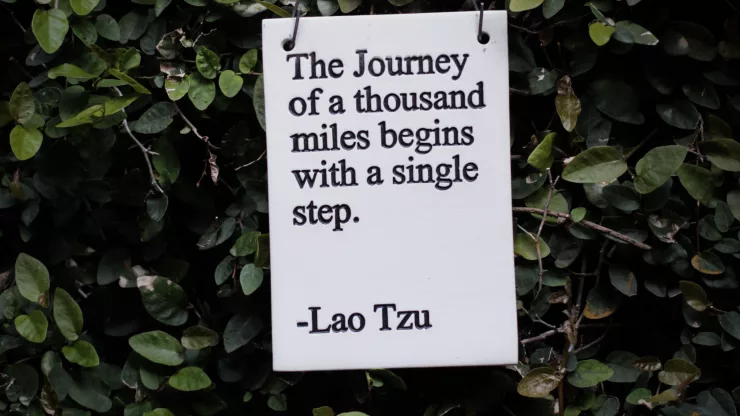Overcoming Fear of Change: Strategies for Life Transitions
Change is inevitable, yet many people find themselves struggling with the fear and anxiety that comes with it. Whether it’s a new job, relationship, or a major life transition, the unknown can be daunting.
However, with the right strategies and mindset, it is possible to overcome this fear and embrace change with confidence and courage.
In this article, we will explore the psychology of fear, strategies for embracing life transitions, building resilience and coping skills, finding support and resources, and moving forward with confidence and courage.
Jump to Section
Understanding the Psychology of Fear
Fear is a natural response to change and the unknown. It is our body’s way of protecting us from potential danger and harm.
However, when fear becomes excessive and irrational, it can hold us back from experiencing new opportunities and personal growth. Understanding the psychology of fear is the first step in overcoming it.
Here are some key points to keep in mind:
- Fear is often based on irrational beliefs and assumptions about the future.
- The more we avoid what we fear, the more it reinforces our anxiety.
- Fear can be managed and reduced through cognitive-behavioral techniques, such as challenging negative thoughts and exposure therapy.
Strategies for Embracing Life Transitions
Embracing life transitions requires a willingness to step outside of your comfort zone and take risks. Here are some strategies to help you navigate through change:
- Practice mindfulness and self-reflection to increase self-awareness and reduce anxiety.
- Set realistic goals and break them down into manageable steps.
- Focus on the positive aspects of change and the opportunities it presents.
- Surround yourself with positive and supportive people who encourage and inspire you.
Building Resilience and Coping Skills
Resilience is the ability to adapt to adversity and bounce back from setbacks. Building resilience and coping skills can help you face life transitions with greater ease and confidence.
Here are some ways to strengthen your resilience:
- Practice self-care, such as exercise, healthy eating, and getting enough sleep.
- Develop a growth mindset and view challenges as opportunities for learning and growth.
- Practice gratitude and focus on the things you are thankful for.
- Seek professional help if you are struggling with anxiety or depression.
Finding Support and Resources
Going through life transitions can be challenging, but you don’t have to do it alone. Finding support and resources can help you feel more connected and less isolated.
Here are some places to turn to for support:
- Friends and family members who are supportive and understanding.
- Online forums and support groups where you can connect with others going through similar experiences.
- Professional counseling or therapy to help you work through your fears and anxieties.
Moving Forward with Confidence and Courage
Moving forward with confidence and courage means taking action and facing your fears head-on. Here are some tips to help you do just that:
- Take small steps towards your goals and celebrate your successes along the way.
- Be kind and compassionate to yourself, even when things don’t go as planned.
- Use positive affirmations and visualization techniques to boost your confidence and motivation.
- Keep a journal to track your progress and reflect on your experiences.
FAQ
How can I overcome my fear of change?
You can overcome your fear of change by understanding the psychology of fear, embracing life transitions, building resilience and coping skills, finding support and resources, and moving forward with confidence and courage. Try practicing mindfulness, setting realistic goals, focusing on the positive aspects of change, and surrounding yourself with positive and supportive people.
What are some coping skills for dealing with anxiety during life transitions?
Some coping skills for dealing with anxiety during life transitions include practicing self-care, developing a growth mindset, practicing gratitude, seeking professional help, and connecting with supportive others.
How can I stay motivated during a major life transition?
You can stay motivated during a major life transition by taking small steps towards your goals, being kind and compassionate to yourself, using positive affirmations and visualization techniques, and keeping a journal to track your progress and reflect on your experiences.

With a deep passion for personal development, Ben has dedicated his career to inspiring and guiding others on their journey towards self-improvement.
His love for learning and sharing knowledge about personal growth strategies, mindfulness, and goal-setting principles has led him to create My Virtual Life Coach.
Contact Ben at [email protected] for assistance.




